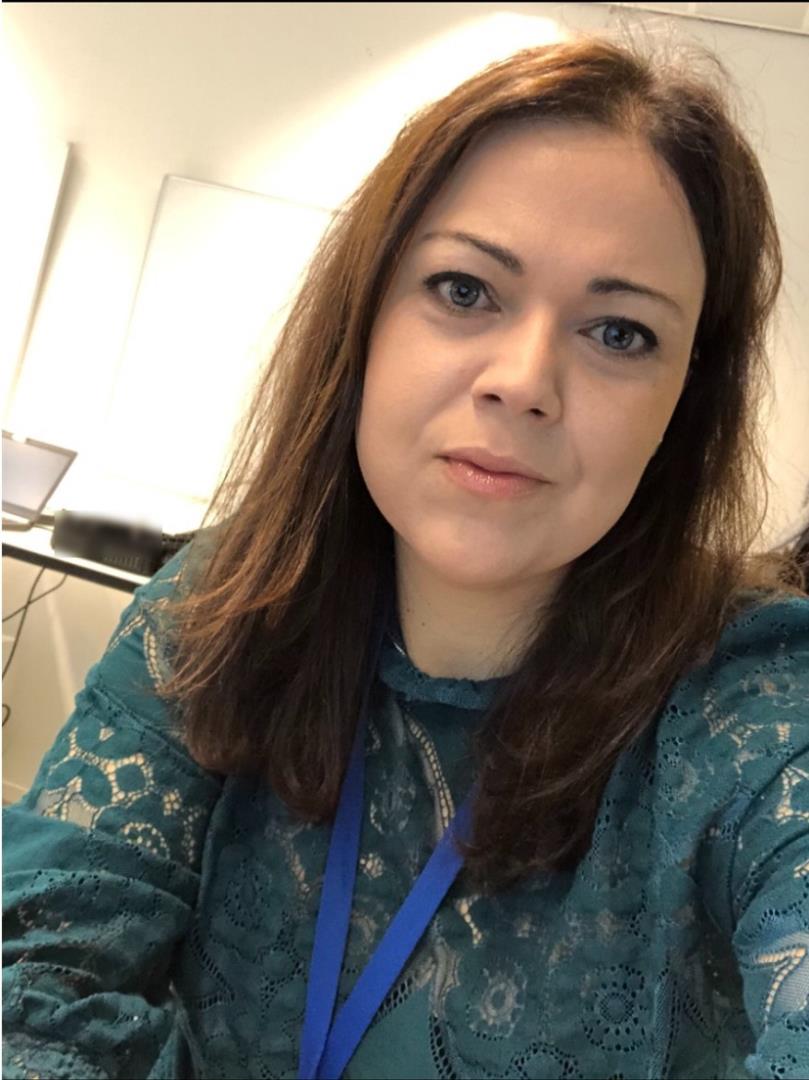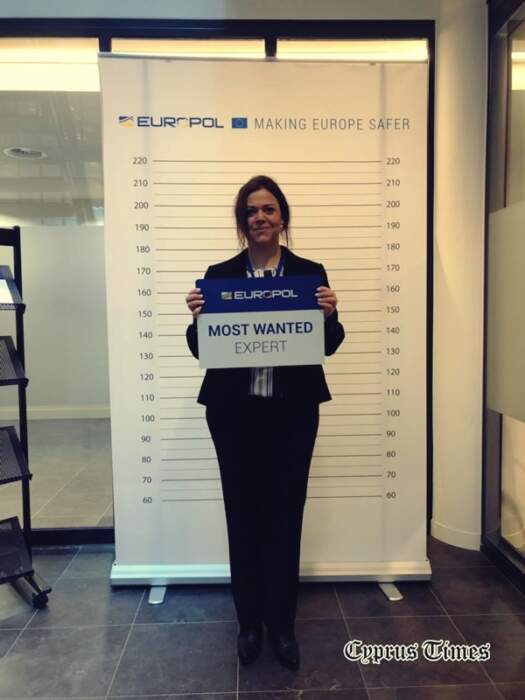
Newsroom
A Cyprus police officer widely known in the media for her role in Malta’s Galizia murder case says she knows how to get into a suspect’s mind when trying to unlock their phones.
Yulia Toma, a police officer seconded by the Cypriot government to work with Europol, said in an interview with Reporter this week that Cyprus is among the strongest countries in the field of Digital Forensics.
Toma, who is currently on her second of three years of secondment at The Hague as a cybercrime analyst, says her unit at Europol handles very tough cases.
“Every piece of evidence is different and unique. I gather all the information from investigators. Even the most insignificant element is of great value in a given case. From old passwords and favorite numbers to whether the suspect is left-handed or right-handed,” Toma told Reporter, adding that “the key is to be able to get into the mind and how the suspect thinks.”
“Only very difficult cases come to us, that is, whatever a national forensic lab can’t do,” Toma explained.
The court experience was very stressful, as she 'felt the pressure from the lawyers on the other side, the journalists, but also the European agency
One of those hard cases was the murder of Daphne Caruana Galizia, a Maltese investigative journalist who was killed in a car bomb attack on 16 October 2017.
On 20 November 2019, following the arrest on a yacht of two suspects in the case including the alleged mastermind, Toma had taken possession of the devices late at night in her office at Europol headquarters, recalling she was handed the phones just after a colleague had travelled from Malta with the confiscated items.
Toma, who joined Europol in February 2019 after being seconded by a December 2018 Cabinet decision, went on to make a forensic image of each phone before starting the unlocking process.
Defence lawyers have asked questions as to why she made copies and who had access to the information, with the police officer telling the court it was “standard practice intended to safeguard the integrity of the original device.”
“A six-digit code has one million combinations,” Toma told Reporter, adding that “if each combination takes about 20 minutes to try out, we could say it might take 30 years to unlock a phone.”
But in the Galizia case, the password was cracked in just over a month, on 9 January 2020, with Toma suggesting her testimony on the witness stand was instrumental in prosecuting the case.
“If I think about the fact that many colleagues examined different pieces of evidence but the court stood on my evidence, then yes, the case could have went a different direction had I been unable to unlock it, it would certainly have gone unnoticed in the courtroom,” the officer told Reporter.
But Toma, who had been reassigned after issues arose with her role in the case, said she went through an exhaustive cross-examination in court as a witness for the prosecution.
“I was put through an exhaustive cross-examination that lasted two and a half hours,” she said, attributing high importance to the specific evidence.

Reports said the police officer was grilled on many issues including the software she had used to crack the password of the black iPhone.
Toma refused to divulge information about the forensic tools she had used, with the defense attorney pointing out that forensic tools used to unlock the phone were made by companies which were not part of Europol.
The court also heard that Toma had not been on a list of authorized officials to have access to the phones, with the police officer responding that she was added later on.
The police officer was also asked to clarify notes she had written in Greek on a piece of paper.
Defense lawyers went after words Toma had used to label the two exhibits - “businessman” and “captain” - with the police officer being asked whether she had spoken to anyone prior about the case.
Toma said she could not recall where she got the information or why she had labeled them with those words, suggesting she might have seen them written down on a bag or somewhere else and wanted to make sure she can identify them separately.

Toma was also grilled on another phrase she had written - “same case as my previous case” - and was asked about whether her previous case might have been linked to the Galizia case.
It was reported that Toma had been to Malta on 15 November 2019 and was under the impression the two cases were related, sparking interest in the courtroom with lawyers inquiring further.
But prosecutors quickly raised objection with the judge ordering a brief recess following commotion in the courtroom. Toma was then excused from the room with the defense lawyers and prosecutors proceeding to battle it out.
“Don't put words into the mouth of the witness,” it was heard during the argument, while the judge took the position that the question had been too broad and needed to be rephrased.
The issue was finally settled and Toma, who was finally let back in, was asked whether the reason for her previous visit was related to the murder of Daphne Caruana Galizia.
“I think it was not related,” Toma replied.
The police officer admitted to Reporter that the court experience was very stressful, as she “felt the pressure from the lawyers on the other side, the journalists, but also the European agency where I work.”
“I had many restrictions and I had to be very careful about what I could say,” Toma said, while also revealing to Reporter that she had switched hotels the night before the trial just to throw people off.
“I had been given instructions not to let anyone approach me,” the police officer said.
She also recalled that the husband of the deceased came close enough to say thank you in Greek after she stepped away from the witness stand.
Toma said she was thankful to Cyprus Police for having provided her with a proper structure as a court witness, saying her experience with cases on the island from many years on the force as played an important role.































